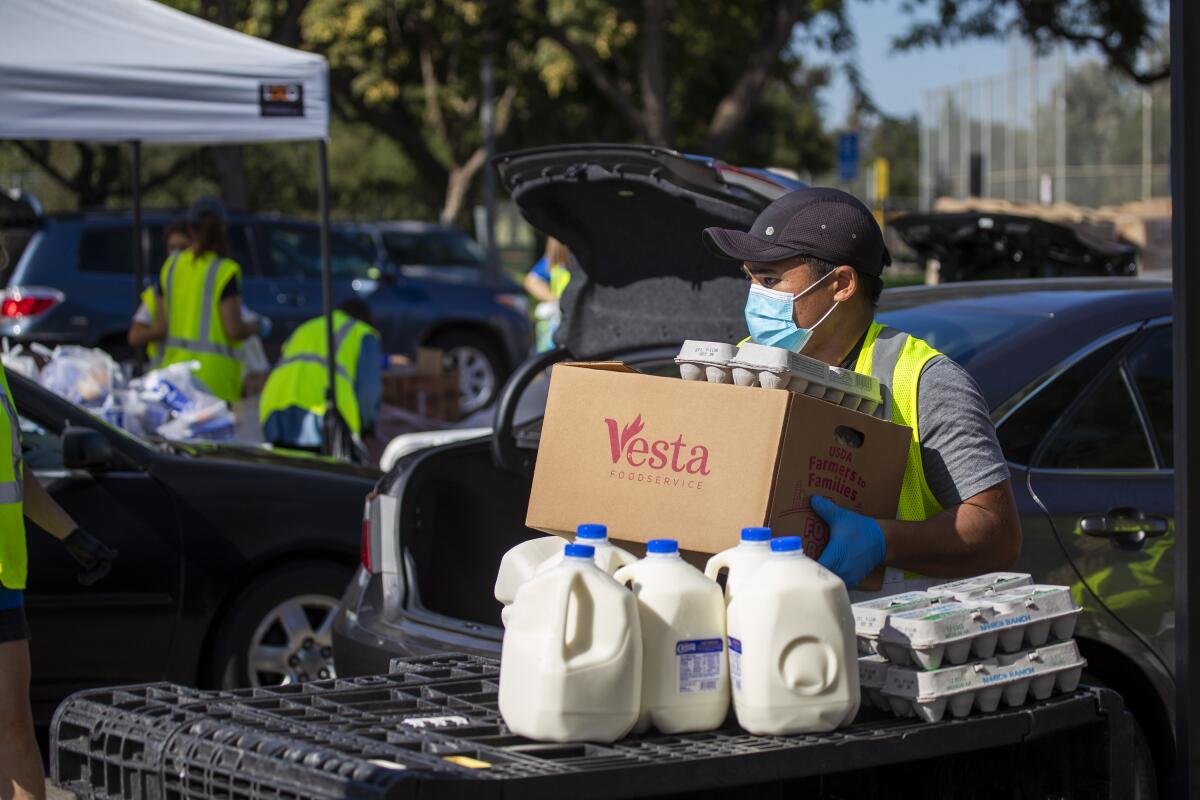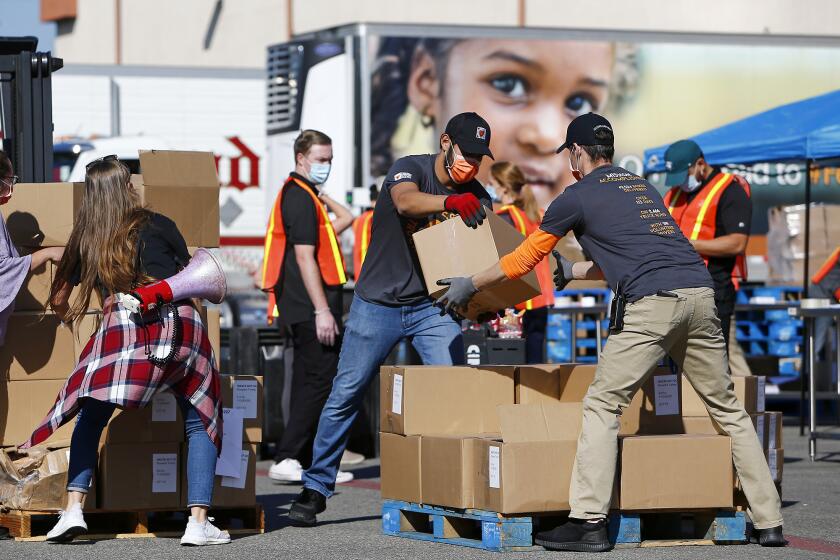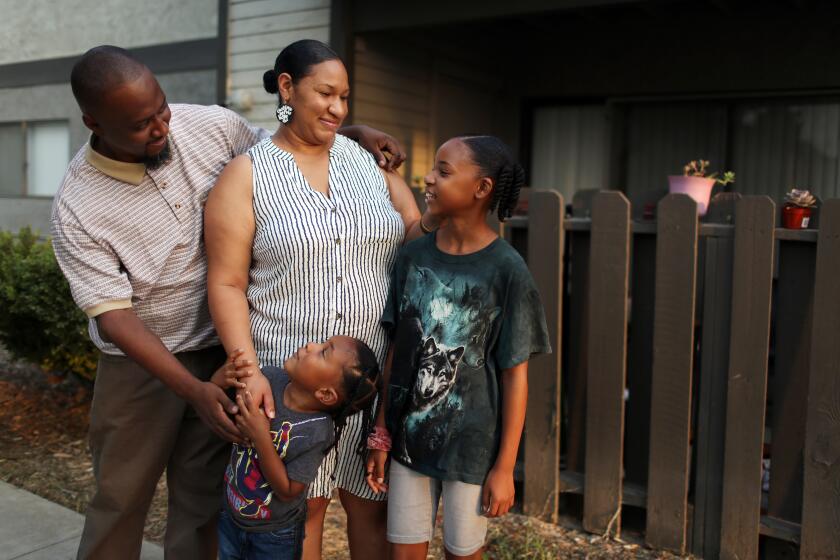Calls to 211 for food, housing assistance during pandemic reveal O.C.’s ‘newly vulnerable’

- Share via
For 211OC — a nonprofit that connects Orange County residents in need with programs that can provide food, housing assistance, job training and other resources — responding to the shifting needs of a community is no small feat.
Employees work around the clock responding to requests that mainly come in from those who dial 211 for telephone assistance.
“We really function as a virtual front door to all the health and human services resources in the community, both public and private,” 211OC Chief Executive Karen Williams said. “We’re able to assess what people’s needs are and connect them to the resource that is most appropriate to help them.”
In a typical year, the nonprofit can field more than 100,000 calls from area residents seeking aid. But 2020 is anything but typical, and now 211OC has the data to prove it.
Volunteers started assembling Thanksgiving dinner boxes this week. Meals will be distributed through a drive-through setup on Thanksgiving morning at the Honda Center.
The nonprofit recently released a six-month community needs analysis that reflects call volume and type from March through August and compares this year’s figures to what the organization experienced during the same period last year.
The astounding results begin to paint a picture of how the COVID-19 pandemic is affecting not only Orange County’s at-risk populations, but also those who may not have needed assistance before, according to Amy Arambulo, the nonprofit’s director of community programs.
“We heard from a lot of newly vulnerable folks, who have never had to navigate the social services landscape before,” Arambulo said. “This was their first time falling into needing help, so 211 is the first place they started with.”
The report showed that calls to 211OC from March through August increased 88% from those received during the same time in 2019 — employees answered 51,349 calls from people who described 112,770 separate needs.
Needs related to housing were identified by 34,435 callers and accounted for about 31% of the total call volume, while requests for food and meal assistance followed close behind with 29,848 calls.
“COVID-19 has created an immense economic burden on O.C. residents, pushing them to food insecurity and concerns with other basic needs,” the report stated. “Our community, including nonprofits, the public sector and philanthropy, has largely responded to these needs, but these needs continue and when they will wane is uncertain.”
The analysis indicated that, in addition to the usual calls seeking emergency shelter, inquiries from those at risk of becoming homeless and seeking housing assistance grew by 568%. Williams said nonprofit workers are worried that figure will grow as the pandemic continues.
“So many of us are one paycheck, or one COVID diagnosis away from needing help,” she said. “And the concern we have right now is that much of the money coming in from the federal government [CARES Act] to the providers will be gone by the end of December.”
Nearly 2,000 communities in the U.S. and elsewhere encourage landlords to evict or exclude tenants who have had some interaction with law enforcement.
With California’s eviction moratorium set to expire at the end of January, even more Orange County renters face an increased risk of losing their housing when months of unpaid back rent comes due.
From 2019 to this year, calls from people concerned about keeping food on the table more than tripled — from 8,816 to 29,848. Arambulo said when California’s shelter-in-place order was issued in March, many food pantries initially closed their doors, sending people scrambling for meals.
The organization 211OC responded, in part, by training temporarily displaced pantry volunteers to help answer the flood of calls for food assistance.
The analysis concludes with a set of recommendations to community groups, encouraging donors and grant makers to remain invested in what it calls “disaster recovery” and urging residents to share the number 211 with those who may be newly vulnerable and volunteer when possible.
“Just know there are nonprofits and agencies to connect folks with resources and make sure they’re not falling through the cracks,” Arambulo advised. “And if they don’t know where to start, they can call 211.”
All the latest on Orange County from Orange County.
Get our free TimesOC newsletter.
You may occasionally receive promotional content from the Daily Pilot.






